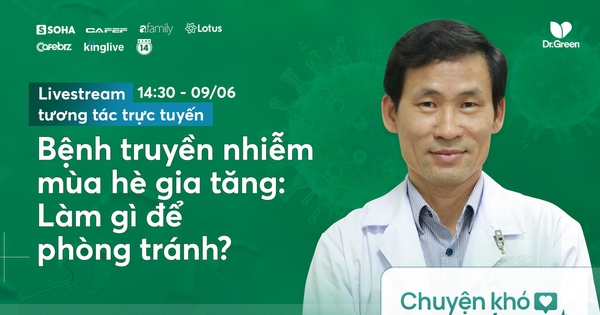When to check the lungs after Covid-19?
Patients should immediately see a doctor if they feel short of breath, short of breath, decreased lung function…, according to Dr. Nguyen Chi Tuan, Center for Internal Respiratory Medicine, 103 Military Hospital.
Doctor Tuan said, after contracting Covid-19, most people return to normal within a few weeks of being infected. But some cases have a post-Covid-19 condition (occurs in F0 who has recovered for 4 to 12 weeks and has symptoms that last at least 2 months, which cannot be explained by an alternative diagnosis), usually problems in the respiratory system, especially the respiratory tract. lungs.
However, unlike some other illnesses that tend to only occur in people who are already very sick, these symptoms can occur in anyone who has Covid-19, even with a mild infection, or without initial symptoms. Therefore, if the patient feels short of breath, shortness of breath, prolonged cough, chest pain, impaired respiratory function, limited physical activity after negative, with a degree of mild to severe, it should not be subjective. This can be a warning sign that the respiratory organs, especially the lungs, are being damaged.

Some pictures of post-Covid-19 lung damage. Photo: given by doctor
Doctor Tuan advises that even if the symptoms are mild, within the first 4-12 weeks of recovery, the infected person should go to a medical facility to be monitored and assessed for his current health status. Early examination in the post-Covid-19 period will help detect and promptly treat sequelae in the lungs; early treatment of sequelae that make the patient worse. For elderly patients with underlying diseases (cancer, diabetes, cardiovascular disease, chronic obstructive pulmonary disease…) and severe Covid-19 patients (requires oxygen, mechanical ventilation) After recovering from illness, if there are symptoms of profuse coughing, shortness of breath chest pain, shortness of breath, it is necessary to see a doctor as soon as possible to assess the level and get the right treatment intervention so that the disease does not get worse, even death.
Examination steps to accurately detect lung damage and timely treatment include: Straight digital lung X-ray or chest computed tomography to evaluate chest abnormalities and common lung lesions such as: opacity, pulmonary fibrosis, organized pneumonia, thickening interlobular septum, emphysema…; Measure respiratory function, exchange of gases in and out of the lungs, early detection of air disturbances (obstruction, restriction).
Patients with severe post-Covid-19 pulmonary fibrosis need to be hospitalized for treatment. Current treatments include: breathing exercises, oxygen, glucocorticosteroids, antifibrotic drugs (Nintedanib, Pirfenidone), stem cell infusions, and lung transplantation. Depending on the degree of lung damage, the doctor will advise the patient on the most appropriate course of treatment.
According to a post-Covid-19 patient monitoring study, around 33-76% of patients experience post-Covid-19 symptoms that last at least 6 months after recovery; 20% of people have to be hospitalized again, 80% of people have to be hospitalized. Patients need to be monitored in primary health facilities within 2 months after discharge,” said Doctor Tuan.
To deal with minor post-Covid-19 complications such as fatigue, shortness of breath, patients should practice breathing, walk gently, and supplement with proper nutrition. Thus, breathing exercises help restore lung function. The patient will be instructed by the doctor with simple breathing exercises or with a device such as a rubber ball, water bottle or spirometer. After recovering from the disease, people should walk about 30 minutes a day, then gradually increase the walking time, in addition, you can do other exercises to improve lung recovery such as yoga, swimming. .. Also, eating nutritious food for the body to recover is a simple way to help cure post-Covid-19 syndrome. Patients should also add foods rich in vitamins, minerals and protein such as fish, lean meats, fresh fruits, dark green vegetables, eggs, milk…
To prevent post-Covid-19 sequelae, it is best to prevent getting sick in various ways. In particular, it is recommended to improve hygiene, masks and disinfectants: the corona virus that causes Covid-19 is through contact with droplets, so everyone needs to follow hygiene, wear masks, disinfectants, keep a distance to limit disease transmission. For those who do not have vaccination contraindications, get the Covid-19 vaccine as soon as possible. This is the best way to prevent Covid-19 and can also help those around you to reduce the risk of getting sick. When suspected of having Covid-19, the public needs to notify their local health facility or doctor for the most appropriate testing, monitoring, and treatment instructions for the severity of their illness. This will significantly reduce the post-Covid-19 sequelae.
Hi My
at Blogtuan.info – Source: vnexpress.net – Read the original article here



